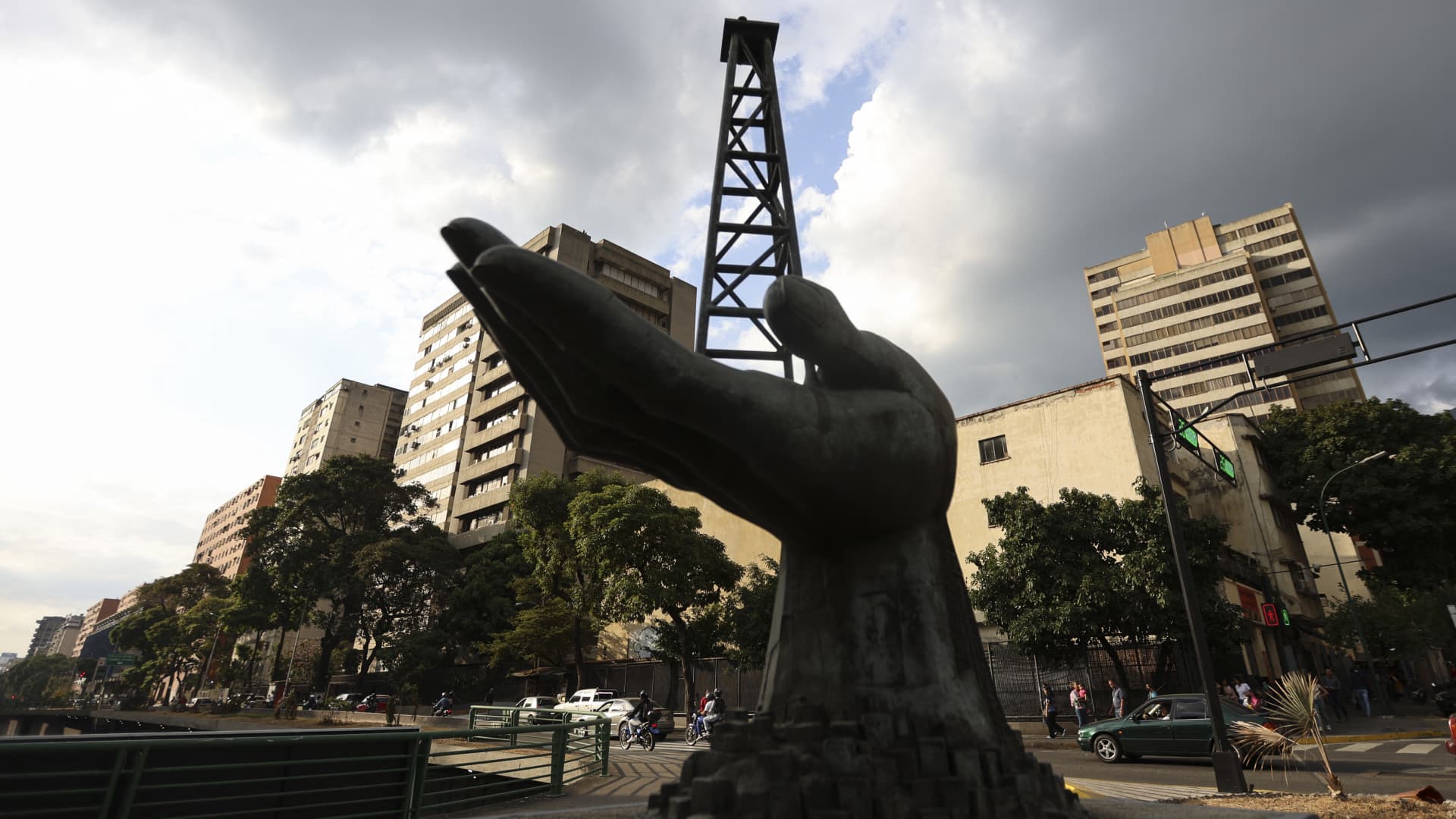- President Donald Trump said the U.S. is imposing “secondary tariffs” on countries that import oil from Venezuela, with China likely the main target.
- Nations that buy Venezuelan oil would face 25% tariffs on all trade with the U.S.
- The U.S. has never deployed tariffs in such an expansive way before, analysts say.
The Trump administration is poised to impose steep tariffs on countries that import oil from Venezuela on Wednesday, in an unprecedented move that analysts say will significantly increase global trade uncertainty.
President Donald Trump said last week any country that buys oil from Venezuela will face 25% “secondary tariffs” on all of its trade with the United States. Trump said in a Truth Social post that the levies go into effect on April 2, though his executive order leaves the implementation to Secretary of State Marco Rubio’s discretion.
“If they buy their oil from Venezuela, they have to pay a 25% tariff to do business with the United States —that’s on top of existing tariffs,” Trump said during a March 24 press conference at the White House.
Trump’s secondary tariffs are “unprecedented and legally questionable, but that won’t prevent the administration from moving forward with them,” according to the consulting firm Rapidan Energy. The International Emergency Economic Powers Act has never been invoked to justify across-the-board tariffs against a country, according to Rapidan.
The tariffs will primarily impact China, the largest importer of Venezuela oil. India and Spain would also face levies unless the U.S. decides to grant exemptions for some countries. Rapidan expects importers to stop purchasing Venezuelan oil as they work to secure exemptions from the White House.
While the Europeans and Indians might get a reprieve, the U.S. has not exempted Chinese companies from sanctions in the past, according to Rapidan. Beijing will likely ditch Venezuelan barrels as a consequence, leading to a supply disruption of around 300,000 barrels per day.
Indeed, early signs suggest this could be happening. On Tuesday, Reuters reported that Venezuela’s exports of crude oil and fuel fell 11.5% in March, according to ship tracking data and documetns.
Trump’s secondary tariffs have introduced a new wild card, Evercore ISI analyst Sarah Bianchi told clients in March 26 note.
The U.S. has imposed secondary sanctions in some cases on organizations doing business with blacklisted entities but it has not used trade tariffs in this way before, according to Bianchi.
Trump’s secondary tariffs could signal that he plans to significantly expand the use of tariffs beyond issues involving trade, the analyst wrote. In the case of Venezuela, the president is wielding them to pressure the Nicolas Maduro regime, which he alleges has sent Tren de Aragua gang members to the U.S.
“Adapting the idea of secondary sanctions to tariffs – and again using tariffs to achieve goals unrelated to trade – in our view further reduces the likelihood that April 2 is the peak of trade uncertainty,” Bianchi told clients.
She warned that Trump could be embolden to use tariffs “to bolster the United States’ global leverage in advancing any number of other foreign policy objectives” if his crackdown on Venezuela is successful.
Get Your Ticket to Pro LIVE
Join us at the New York Stock Exchange!
Uncertain markets? Gain an edge with CNBC Pro LIVE, an exclusive, inaugural event at the historic New York Stock Exchange. In today’s dynamic financial landscape, access to expert insights is paramount.
As a CNBC Pro subscriber, we invite you to join us for our first exclusive, in-person CNBC Pro LIVE event at the iconic NYSE on Thursday, June 12.
Join interactive Pro clinics led by our Pros Carter Worth, Dan Niles and Dan Ives, with a special edition of Pro Talks with Tom Lee. You’ll also get the opportunity to network with CNBC experts, talent and other Pro subscribers during an exciting cocktail hour on the legendary trading floor. Tickets are limited!










